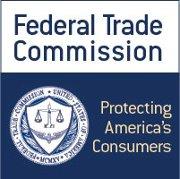
FTC Action Stops Massive Payday Loan Fraud Scheme
Defendants Agree to be Banned from Consumer Lending Industry
The operators of a payday lending scheme that allegedly bilked millions of dollars from consumers by trapping them into loans they never authorized will be banned from the consumer lending business under settlements with the Federal Trade Commission.The settlements stem from charges the FTC filed last year alleging that Timothy A. Coppinger, Frampton T. Rowland III, and their companies targeted online payday loan applicants and, using information from lead generators and data brokers, deposited money into those applicants’ bank accounts without their permission. The defendants then withdrew reoccurring “finance” charges without any of the payments going to pay down the principal owed. The court subsequently halted the operation and froze the defendants’ assets pending litigation.
According to the FTC’s complaint, the defendants told consumers they had agreed to, and were obligated to pay for, the unauthorized “loans.” To support their claims, the defendants provided consumers with fake loan applications or other loan documents purportedly showing that consumers had authorized the loans. If consumers closed their bank accounts to stop the unauthorized debits, the defendants often sold the “loans” to debt buyers who then harassed consumers for payment.
The defendants also allegedly misrepresented the loans’ costs, even to consumers who wanted the loans. The loan documents misstated the loan’s finance charge, annual percentage rate, payment schedule, and total number of payments, while burying the loans’ true costs in fine print. The defendants allegedly violated the FTC Act, the Truth in Lending Act, and the Electronic Funds Transfer Act.
Under the proposed settlement orders, the defendants are banned from any aspect of the consumer lending business, including collecting payments, communicating about loans, and selling debt. They are also permanently prohibited from making material misrepresentations about any good or service, and from debiting or billing consumers or making electronic fund transfers without their consent.
The orders extinguish any consumer debt the defendants are owed, and bar them from reporting such debts to any credit reporting agency, and from selling or otherwise benefiting from customers’ personal information.
The defendants are Coppinger and his companies, CWB Services LLC, Orion Services LLC, Sandpoint Capital LLC, Sandpoint LLC, Basseterre Capital LLC, Basseterre Capital LLC, Namakan Capital LLC, and Namakan Capital LLC, and Rowland and his companies, Anasazi ervices LLC, Anasazi Group LLC, Vandelier Group LLC, St. Armands Group LLC,; Longboat Group LLC, doing business as Cutter Group, and Oread Group LLC, d/b/a Mass Street Group.
The settlement orders impose consumer redress judgments of approximately $32 million and $22 million against Coppinger and his companies and Rowland and his companies, respectively. The judgments against Coppinger and Rowland will be suspended upon surrender of certain assets. In each case, the full judgment will become due immediately if the defendants are found to have misrepresented their financial condition.
The Commission vote approving the proposed stipulated final orders was 5-0. The documents were filed in the U.S. District Court for the Western District of Missouri. The proposed orders are subject to court approval.
NOTE: Stipulated final orders have the force of law when approved and signed by the District Court judge.
To learn more, read Online Payday Loans.
The Federal Trade Commission works for consumers to prevent fraudulent, deceptive, and unfair business practices and to provide information to help spot, stop, and avoid them. To file a complaint in English or Spanish, visit the FTC’s online Complaint Assistant or call 1-877-FTC-HELP (1-877-382-4357). The FTC enters complaints into Consumer Sentinel, a secure, online database available to more than 2,000 civil and criminal law enforcement agencies in the U.S. and abroad. The FTC’s website provides free information on a variety of consumer topics.
